- About MAA
- Membership
- MAA Publications
- Periodicals
- Blogs
- MAA Book Series
- MAA Press (an imprint of the AMS)
- MAA Notes
- MAA Reviews
- Mathematical Communication
- Information for Libraries
- Author Resources
- Advertise with MAA
- Meetings
- Competitions
- Programs
- Communities
- MAA Sections
- SIGMAA
- MAA Connect
- Students
- MAA Awards
- Awards Booklets
- Writing Awards
- Teaching Awards
- Service Awards
- Research Awards
- Lecture Awards
- Putnam Competition Individual and Team Winners
- D. E. Shaw Group AMC 8 Awards & Certificates
- Maryam Mirzakhani AMC 10 A Awards & Certificates
- Two Sigma AMC 10 B Awards & Certificates
- Jane Street AMC 12 A Awards & Certificates
- Akamai AMC 12 B Awards & Certificates
- High School Teachers
- News
You are here
Mathematical Treasure: Selected Journal Articles by Charles Babbage
Charles Babbage (1791–1871) was an inventor and scientist as well as a mathematician, prolific writer, and friend and tutor of Ada Lovelace. Several of his articles were extracted from the journals and transactions in which they appeared and published as separate pamphlets for distribution by the author and other readers. Here we will note several of these works along with an independent publication related to his advocacy for the differential and integral calculus:
“Observations on the analogy which subsists between the calculus of functions and the other branches of analysis,” Philosophical Transactions 107, no. 107 (December 1817): 197–216.
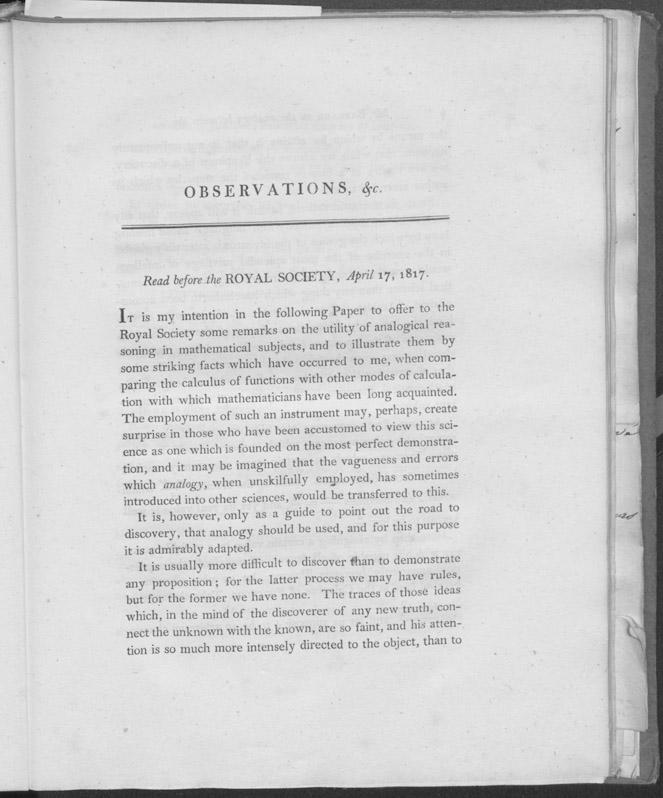
Additional pages:

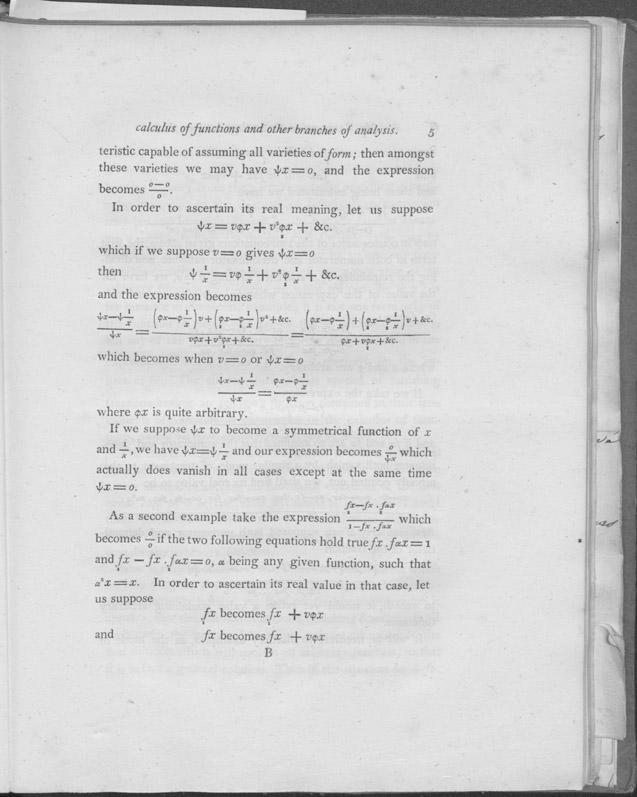
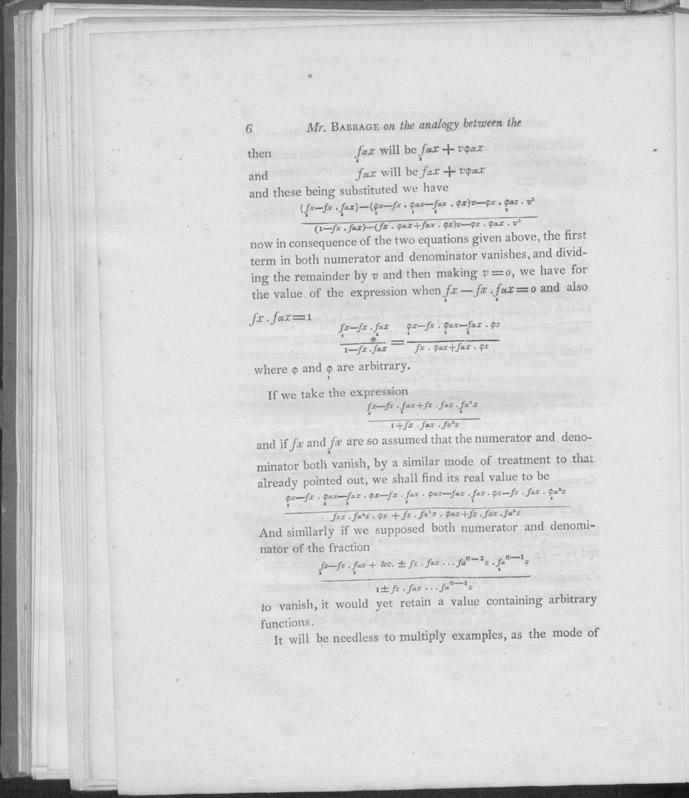
Read the full article in the Accademia delle Scienze di Torino. Read the full article as it was originally published in Philosophical Transactions.
“On the application of analysis to the discovery of local theorems and porisms,” Transactions of The Royal Society of Edinburgh 9, no. 2 (1823): 337–352.
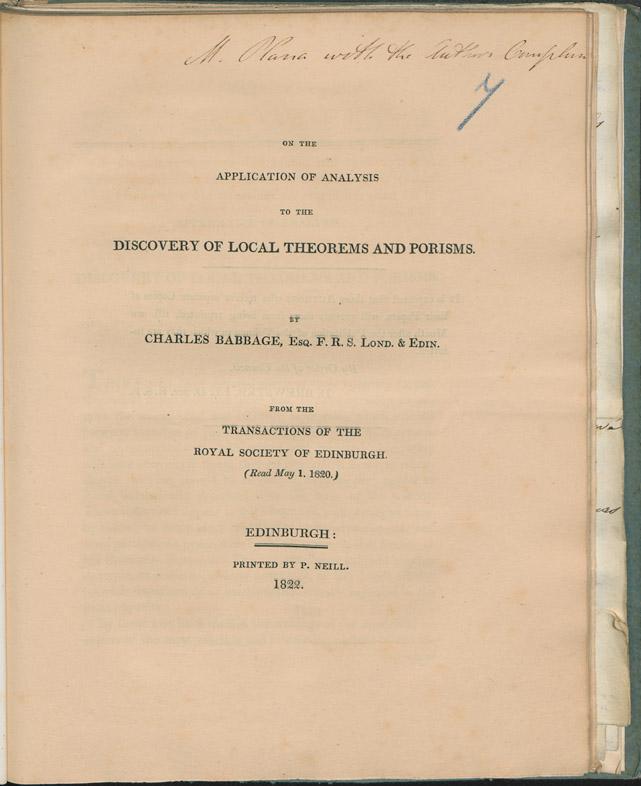
Sample pages:
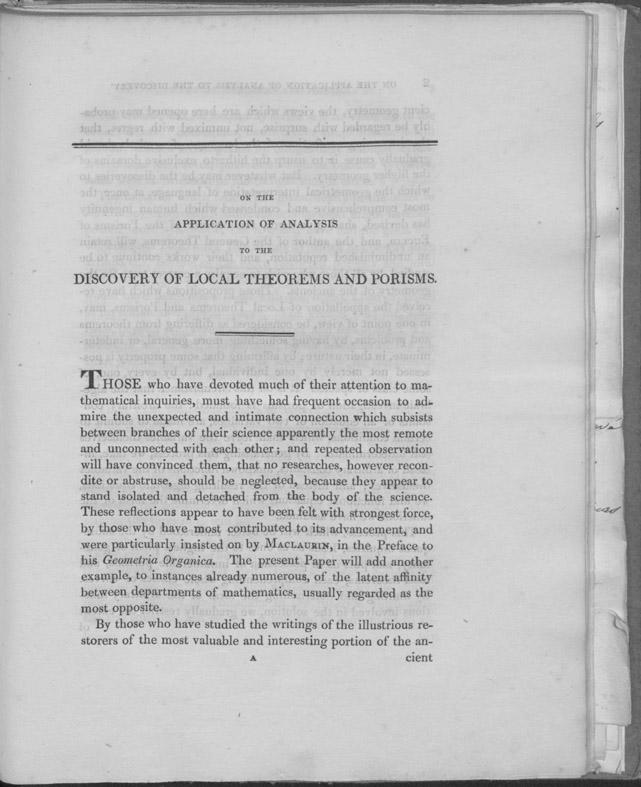
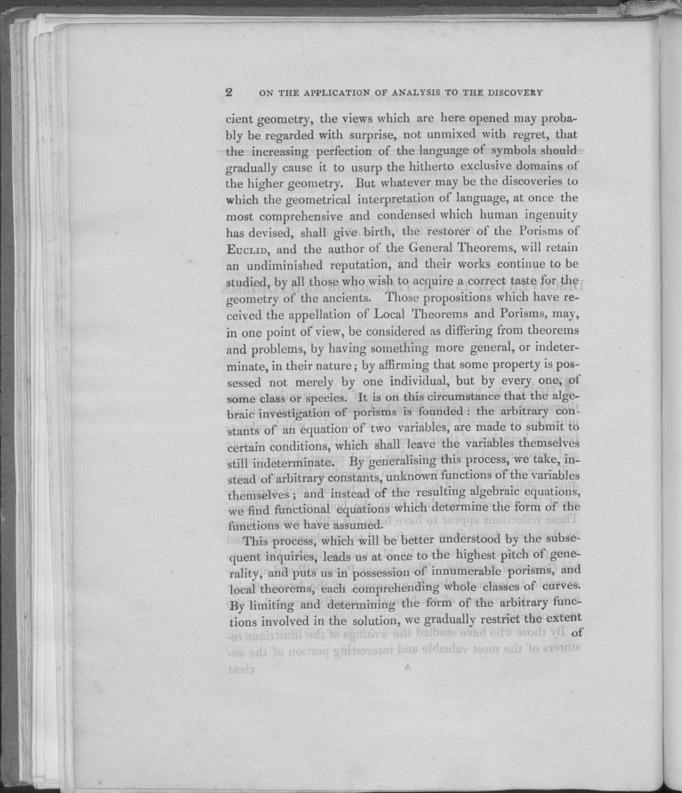


Read the full article in the Accademia delle Scienze di Torino. Read the full article as it was originally published in Transactions of the Royal Society of Edinburgh.
Babbage’s Examples of the Solutions of Functional Equations was written in 1820 as part of the work of the Analytical Society, during a year in which he was also helping found the Royal Astronomical Society.
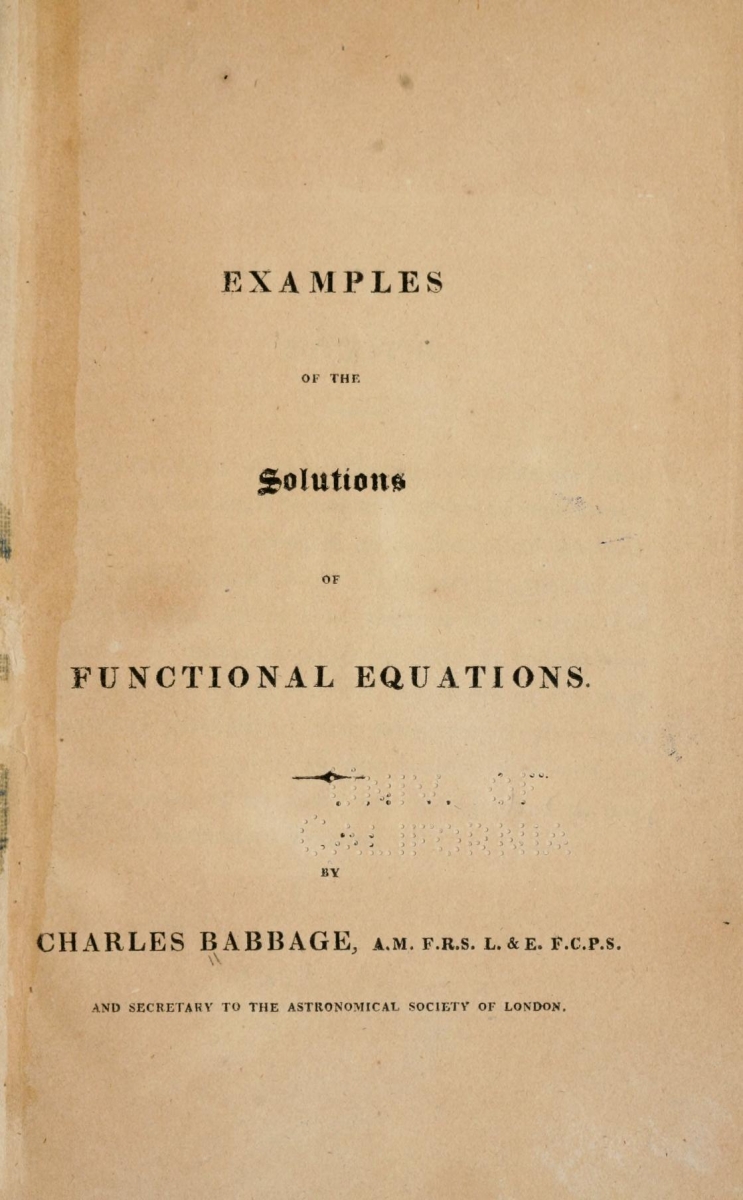
Sample pages:
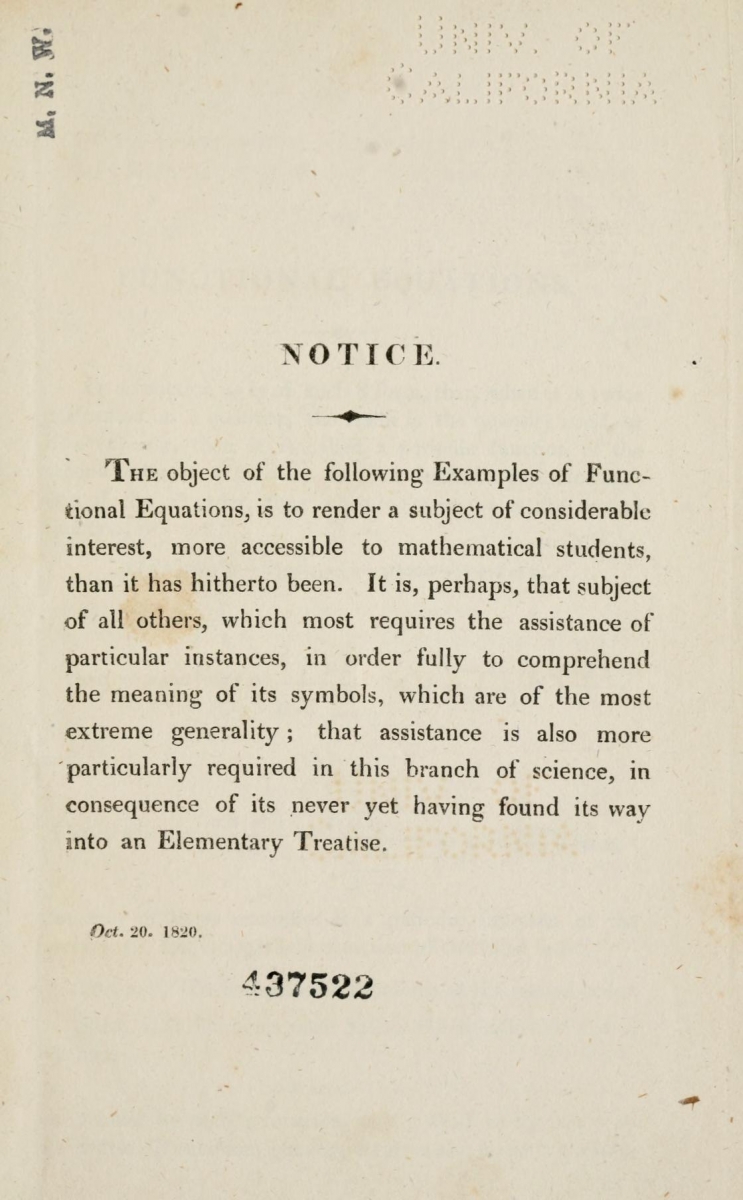
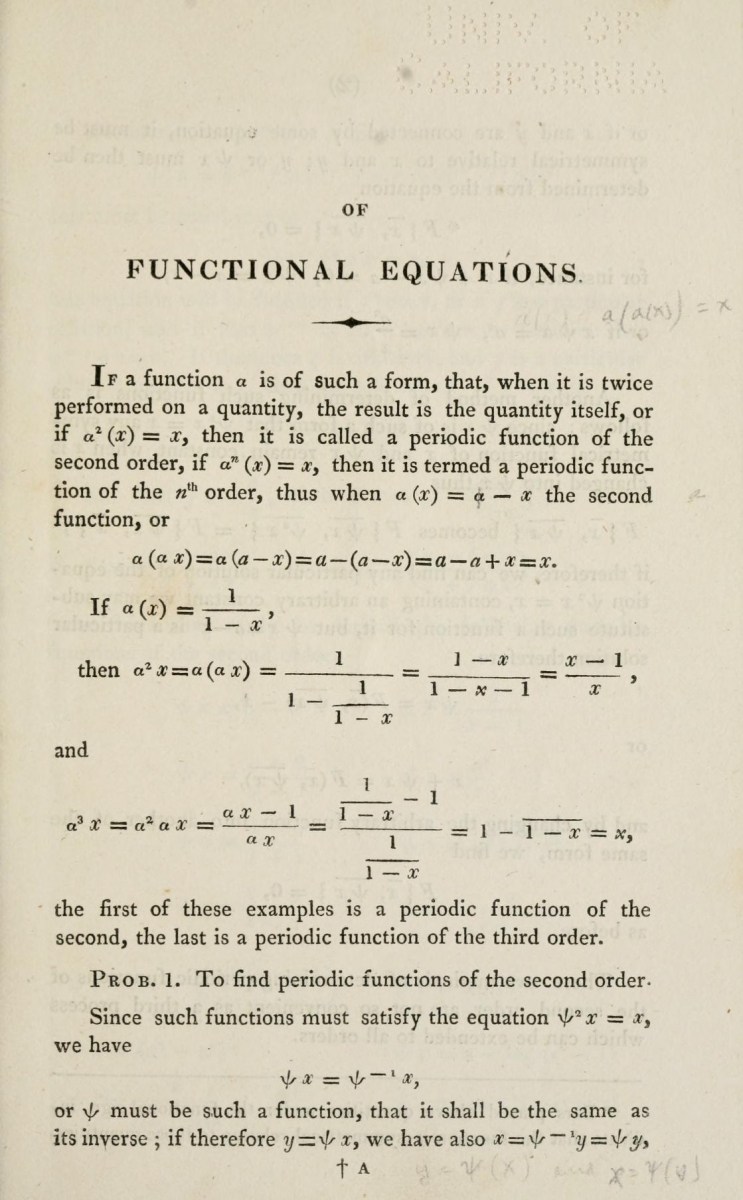
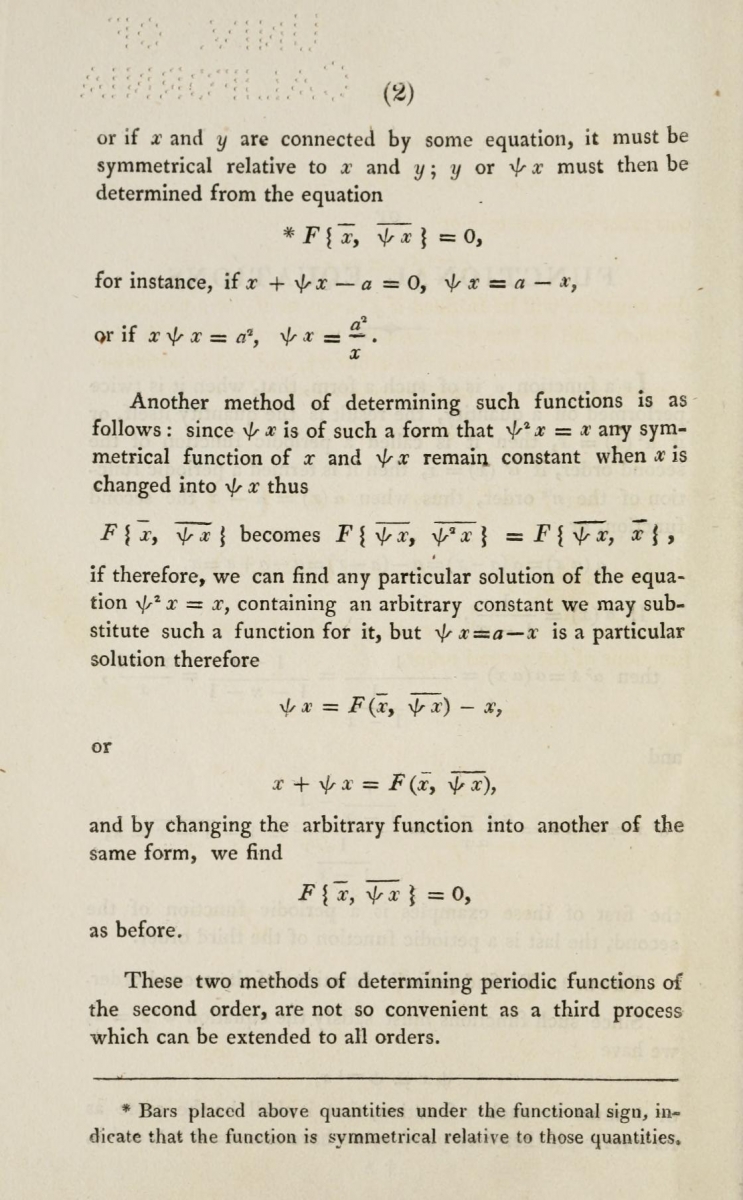

Read all 42 pages of the book in the Internet Archive.
“Observations on the notation employed in the calculus of functions,” Transactions of the Cambridge Philosophical Society 1 (1820): 63–76.
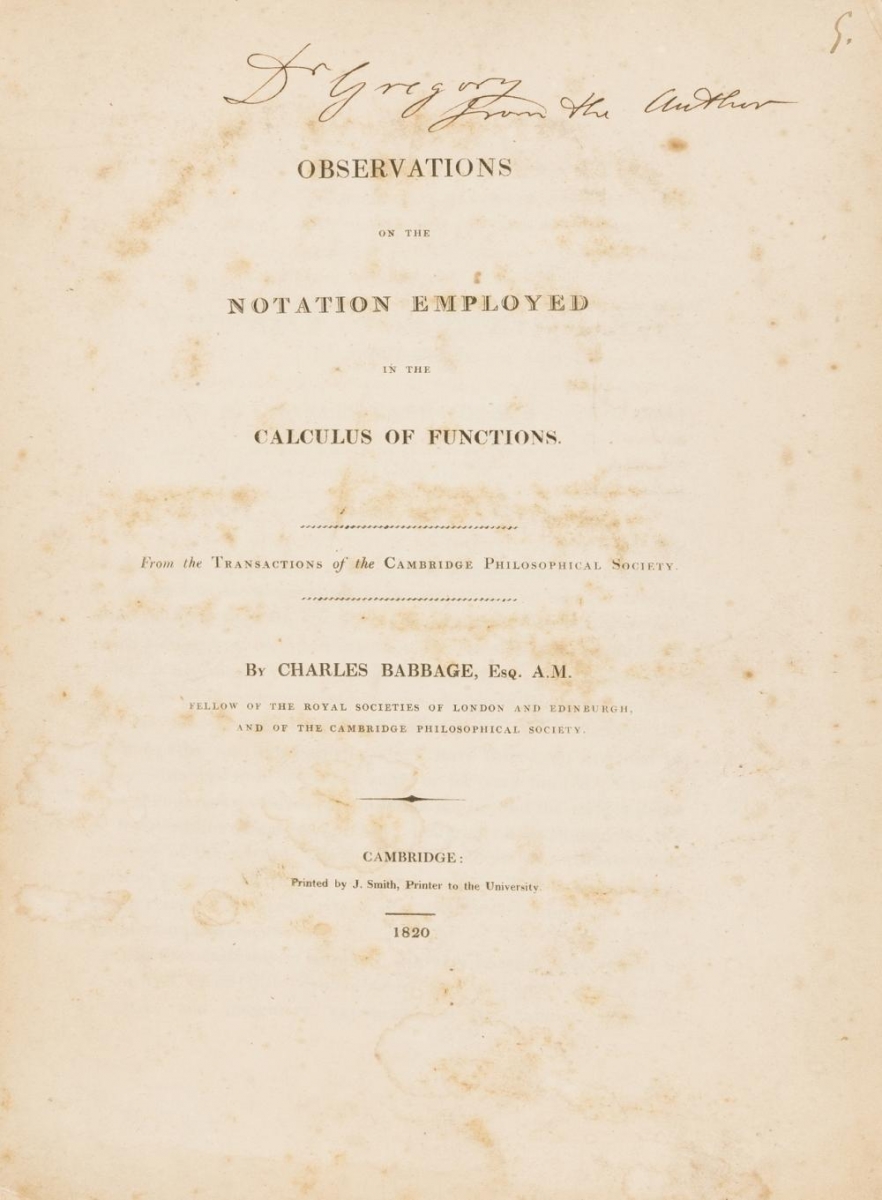
Read the article in the Internet Archive.
“On the influence of signs in mathematical reasoning,” Transactions of the Cambridge Philosophical Society 2 (1827): 325–377. Preprinted in 1826 by J. Smith, Cambridge.
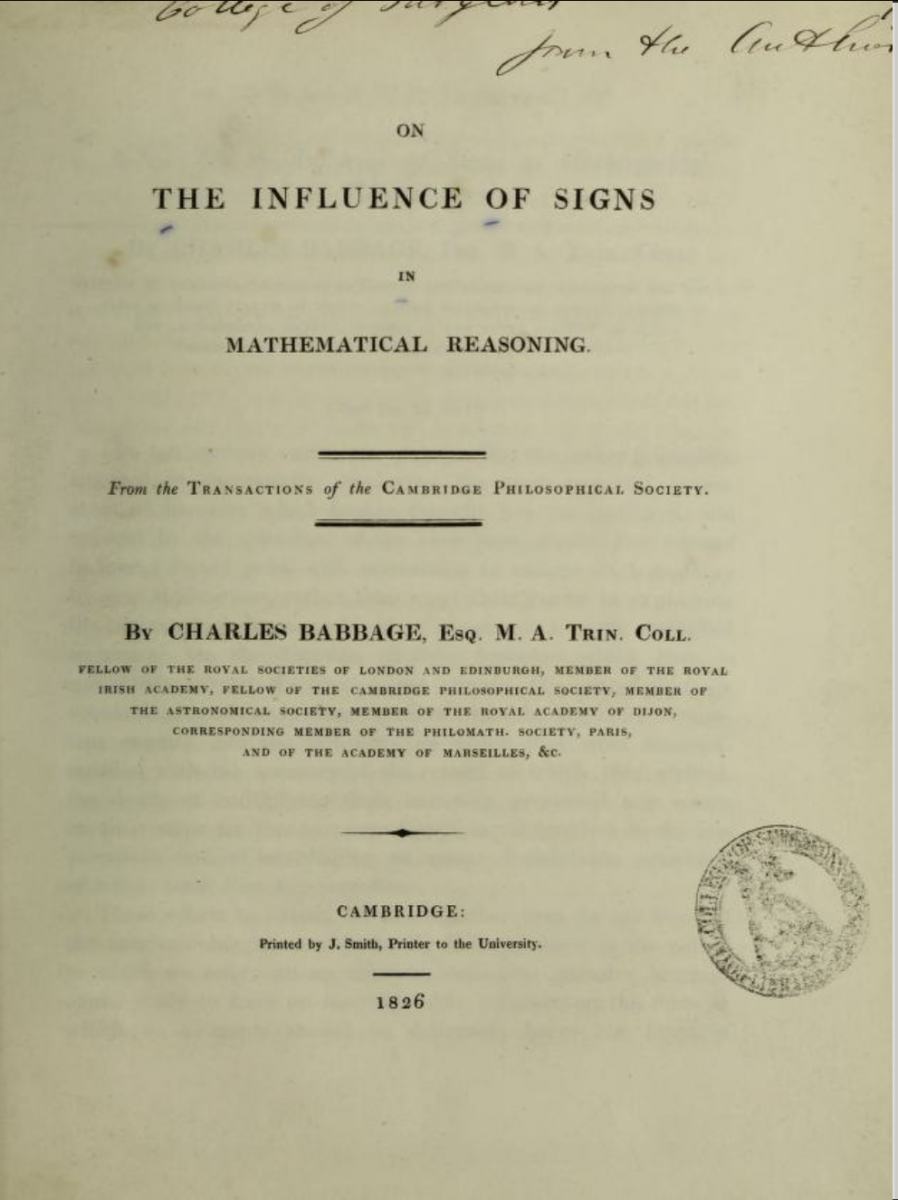
Sample problems:
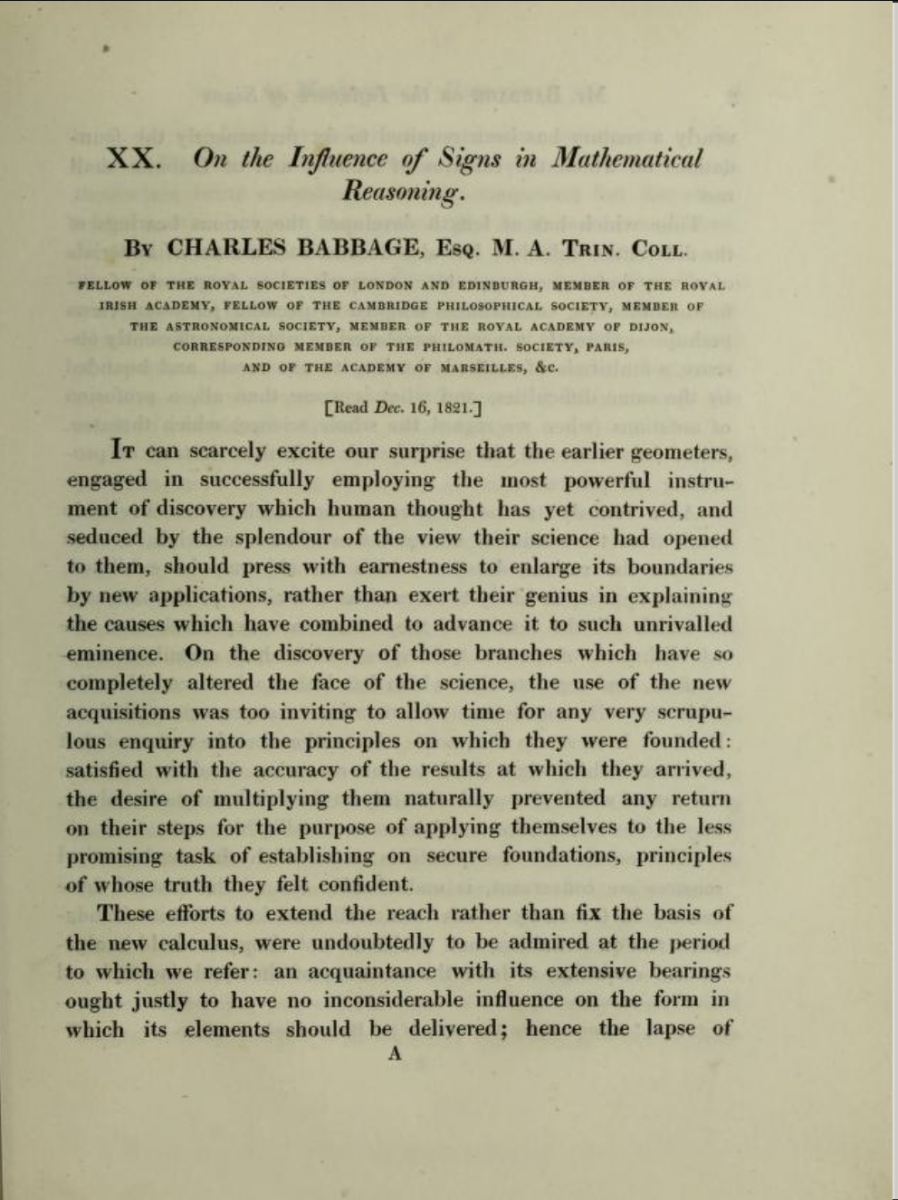
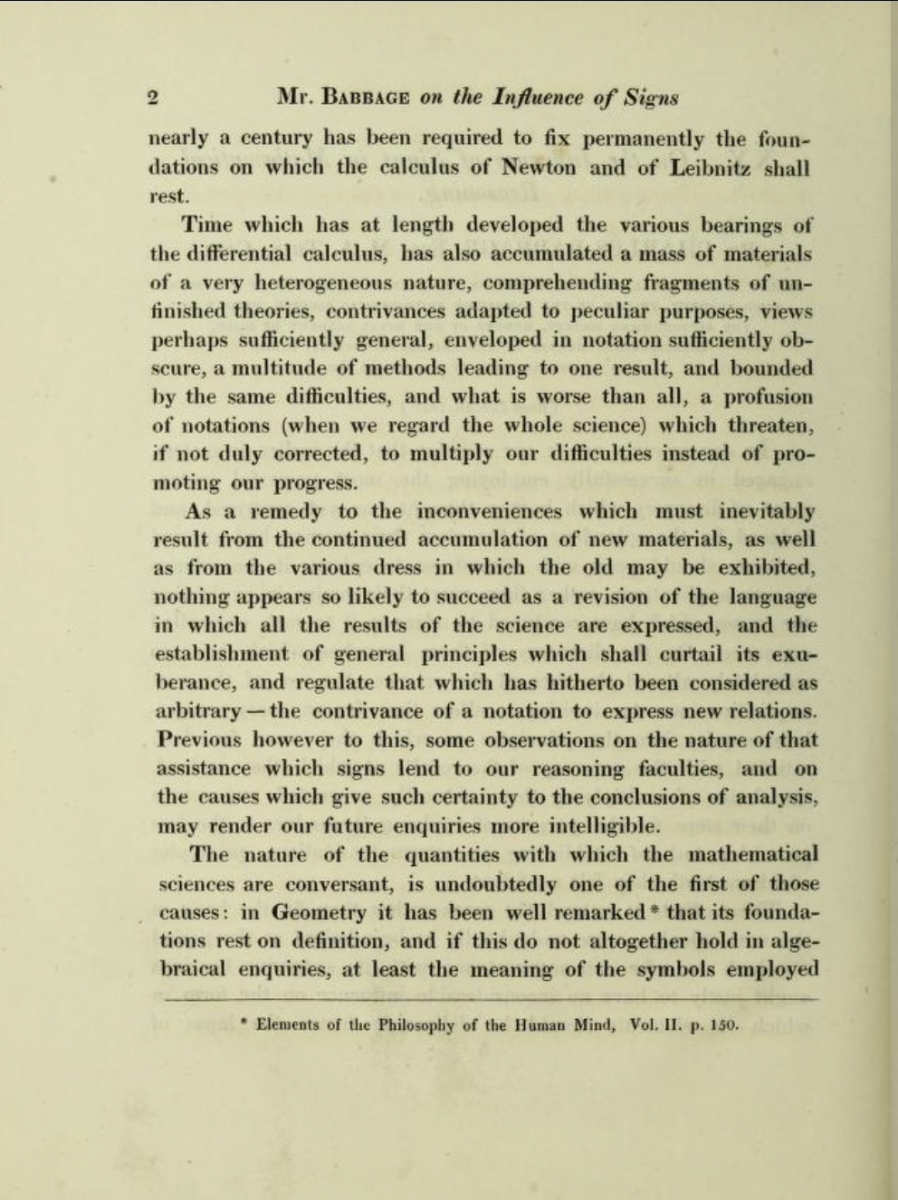

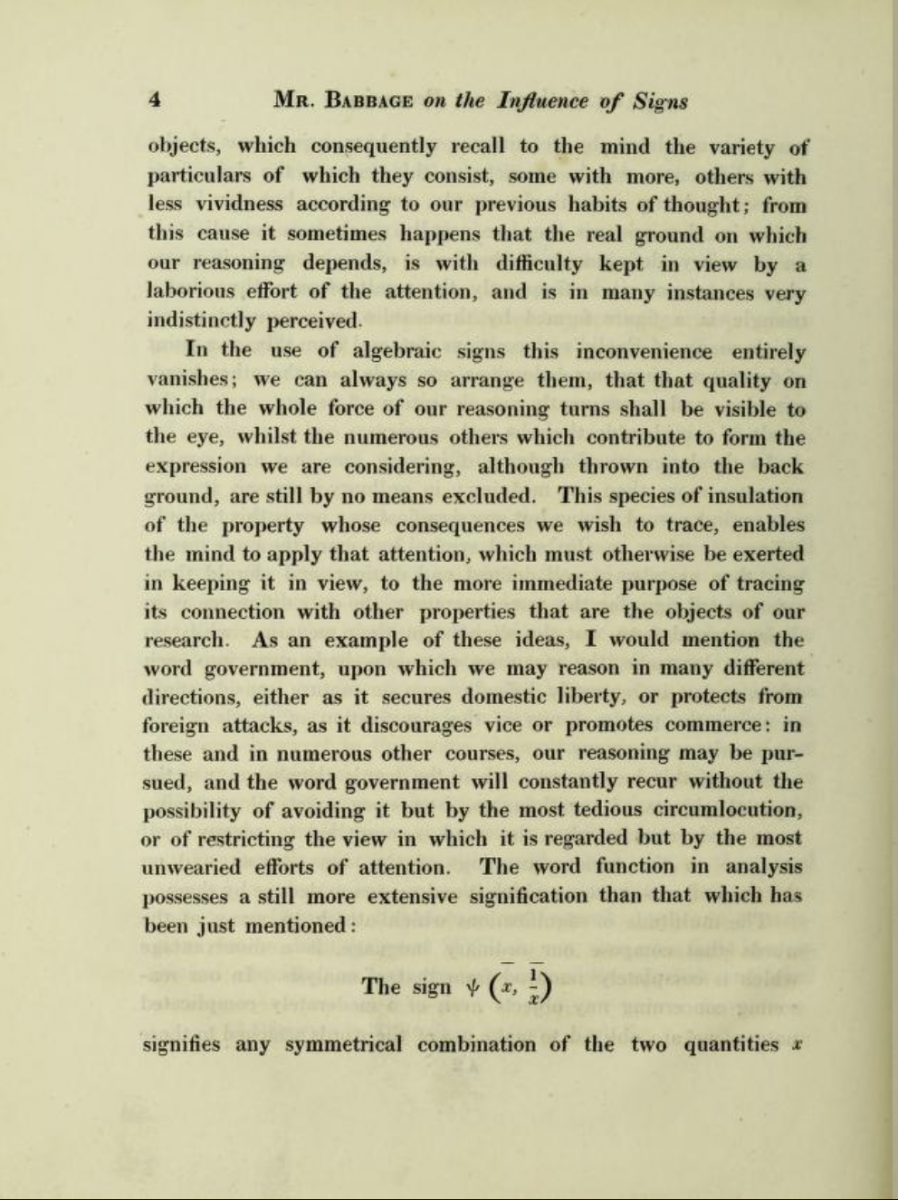
Read the article in the Internet Archive. Another copy was offered for sale ca 2023 by Jonathan Hill, Bookseller.
The images on this page depict items in the digital collections of the Accademia delle Scienze di Torino and were found by searching the catalogue of Museo Galileo.
Frank J. Swetz (The Pennsylvania State University), "Mathematical Treasure: Selected Journal Articles by Charles Babbage," Convergence (February 2023)




